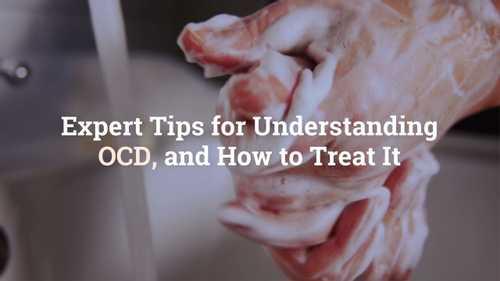Expert Tips for Understanding OCD, and How to Treat It
Curated from: health.com
Ideas, facts & insights covering these topics:
5 ideas
·2.16K reads
14
Explore the World's Best Ideas
Join today and uncover 100+ curated journeys from 50+ topics. Unlock access to our mobile app with extensive features.
Obsessive-Compulsive Disorder In A Global Crisis
- One example of Obsessive-Compulsive Disorder (OCD) is the phobia related to germs and leads to a person disinfecting and cleaning everything obsessively.
- It is already problematic for many and is now amplified due to the ongoing pandemic.
- A person who is fanatic about sanitizing is having OCD if it is accompanied by constant anxiety and distress.
- One in every 100 adults suffer from this disorder in the U.S., and it may be genetic.
55
649 reads
OCD: Not Just Cleanliness
Obsessive-Compulsive Disorder (OCD) often develops in creative and intelligent people and is not limited to being obsessive about sanitizing everything.
People develop compulsive behaviours about leaving their house unlocked, or leaving the car light on. People can have obsessive sexual thoughts or be extremely God-fearing. The common thread is that they are stuck in a ‘thought loop', a constant state of anxiety.
58
409 reads
Repetitive Routine Activities
Some people with Obsessive-Compulsive Disorder (OCD) develop repetitive activities like tapping, fiddling or blinking, usually a form of body movement or action that provides them with some relief.
People with Obsessive-Compulsive Disorder (OCD) themselves are aware that their constant anxiety and compulsions are irrational, and the relief they provide is temporary, but the urge is so intense that they are helpless.
51
341 reads
Uncertainty And Obsessive-Compulsive Disorder (OCD)
Our brain structure, just like our genes, can make us vulnerable to OCD. Some types of minds are always pursuing certainty and perfection, not knowing that it is impossible to attain 100 percent of anything at all times.
As the compulsion is never given any permanent relief, there is a need to constantly repeat the action.
51
363 reads
Treatment Of Obsessive-Compulsive Disorder (OCD)
OCD is often misdiagnosed by medical professionals as depression, anxiety or even bipolar disorder. When it is recognized for what it is, the most effective treatment is EPR, or exposure and response therapy, which is similar to CBT (cognitive behaviour therapy).
ERP therapy exposes the patient to situations and thoughts that cause anxiety while controlling the urge to perform the compulsive action. It is effective in about 66% of people and is often clubbed with certain medication.
52
399 reads
IDEAS CURATED BY
"The greatest of follies is to sacrifice health for any other kind of happiness." - Schopenhauer
Aurora E.'s ideas are part of this journey:
Learn more about health with this collection
Cultivating self-awareness and self-reflection
Prioritizing and setting boundaries for self-care
Practicing mindfulness and presence
Related collections
Similar ideas
9 ideas
Relationship OCD | Made of Millions Foundation
madeofmillions.com
2 ideas
Everything You Want to Know About OCD
healthline.com
5 ideas
What Is Compulsive Behavior?
thoughtco.com
Read & Learn
20x Faster
without
deepstash
with
deepstash
with
deepstash
Personalized microlearning
—
100+ Learning Journeys
—
Access to 200,000+ ideas
—
Access to the mobile app
—
Unlimited idea saving
—
—
Unlimited history
—
—
Unlimited listening to ideas
—
—
Downloading & offline access
—
—
Supercharge your mind with one idea per day
Enter your email and spend 1 minute every day to learn something new.
I agree to receive email updates
